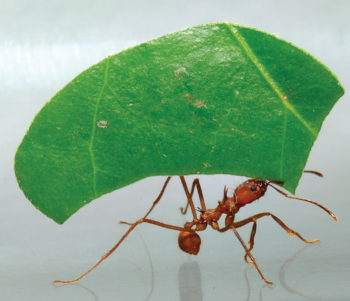
Louise Grabell
Ants, ants, ants in your pants! Have you ever found a trail of very busy ants scurrying across your patio from one location clear across your yard to another? I’ve found ant highways going across the patio, up into the garden, over the wall into the common area and around the pool.
Of course, if ants are gathering around the pool, there are going to be a few that end up in the pool. This is very unhygienic…who wants to be swimming in a pool of ants? It’s best to call Pool Cleaning McKinney Texas if you’re finding insects in your pool. Ultimately, swimming pools are a very high maintenance investment and require frequent cleaning because of this.
That being said, there are other ways to keep your pool clean too. For example, as per this recommendation quite a few people have purchased robot pool cleaners and have found that doing so has kept their pool water clear and free from pests. Above all, pool maintenance is an essential process that all swimming pool owners should complete diligently.
Generally speaking, the ant population certainly are on the move though. In human terms, that must be a ten-mile jog! And six legs, too! Most people consider ants a problem and call their exterminator to kill the little buggers asap. I can’t say I would like to have ants inside my house. However, ants are helpful insects in the garden so here I am to help you understand and appreciate the ant.
Ants live in colonies…everyone knows that. But did you know that the colonies consist of non-mating female workers…the ones you see scurrying along your yard in a narrow trail, looking for food which they bring to the nest to feed the queen and her young. At certain times, some eggs hatch into winged males and females who mate. After mating, the males die and the mated queens fly off to start other colonies.
No one likes carpenter ants or those stinging fire ants, but generally, ants are beneficial. Let’s start with where they live: ants dig through the soil making a labyrinth of tunnels which aerate the soil and allow moisture to penetrate to plant roots. The detritus [leaves, insect bodies] brought into the colony by the ants adds enrichment to the soil, especially to our high desert soil which is devoid of nitrates, etc. And here’s the really good part, ants are predators to many garden insects, and in the process of seeking a delicious aphid, ants may pollinate flowers and even distribute seeds. If you’ve spied a line of ants moving up and down the stems of your roses, look for aphids, mealybugs, scale or any other sap-sucking bugs. The ants are attracted to the sweet honeydew excreted by these bugs which they swallow and store in a special stomach. Back at the nest, the ants regurgitate the honeydew for the queen and her workers. Some ants even keep aphids inside their nests, giving the aphids shelter in exchange for the honeydew!
Did you know that ants are considered delicacies in some cultures? Right here in the desert southwest, the native honey-pot worker ants gather large stores of nectar in their swollen bodies and have been snacked upon by Native Americans for centuries. Now that’s a really good ant to bring to a picnic!
Food-grade diatomaceous earth placed sparingly around the base of an ant-infested plant will get rid of the ants without the use of disagreeable pesticides. Keep it off the flowers as it will kill the bees, too!
Your Master Gardeners invite you to visit their website: http://saddlebrookemastergardeners.org/ for all up-to-date information and events for your community. Garden questions? You can reach our very own Garden Helpline by calling Pat at 407-6459.
Remember, nothing brings more tranquility to the heart than a beautiful garden.
